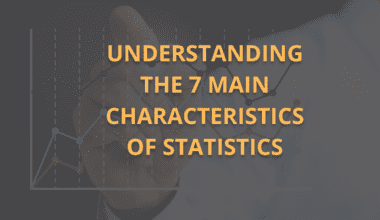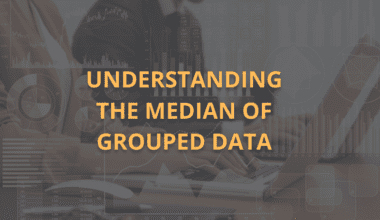Summary: Business Intelligence tools are software applications that help organizations collect, process, analyse, and visualize data from various sources. These tools transform raw data into actionable insights, enabling businesses to make informed decisions, improve operational efficiency, and adapt to market trends effectively. They are essential for strategic planning and performance monitoring.
Introduction
Business Intelligence (BI) tools are essential for organizations looking to harness data effectively and make informed decisions. As businesses increasingly rely on data-driven strategies, the global BI market is projected to reach US$36.35 billion in 2029, reflecting a compound annual growth rate (CAGR) of 5.35% from 2023 to 2029.
The rise of big data, along with advancements in technology, has led to a surge in the adoption of BI tools across various sectors. According to a report by Gartner, organizations that utilize BI tools can improve their operational efficiency and gain competitive advantages over rivals.
Furthermore, a study indicated that 71% of organisations consider Data Analytics a critical factor for enhancing their business performance.
This blog will explore what Business Intelligence tools are, their functionalities, real-world applications, and address common questions surrounding them.
Key Takeaways
- Business Intelligence tools collect and analyse data from diverse sources for actionable insights.
- They enhance decision-making by transforming raw data into visual reports and dashboards.
- BI tools support real-time analytics, improving responsiveness to market changes.
- Self-service BI empowers non-technical users to generate reports independently.
- Organizations leverage BI tools to track KPIs and optimize operational performance effectively.
What Are Business Intelligence Tools?
Business Intelligence tools encompass a variety of software applications designed to collect, process, analyse, and present business data. These tools enable organizations to convert raw data into actionable insights through various means such as reporting, analytics, data visualization, and performance management. The primary functions of BI tools include:
- Data Collection: Gathering data from multiple sources including internal databases, external APIs, and cloud services.
- Data Processing: Cleaning and organizing data for analysis.
- Data Analysis: Utilizing statistical methods and algorithms to identify trends and patterns.
- Data Visualization: Presenting data in graphical formats such as charts, dashboards, and reports for easier interpretation.
Types of Business Intelligence Tools
Business Intelligence (BI) tools are essential for organizations seeking to analyse data and derive actionable insights. These tools facilitate data collection, processing, visualization, and reporting, enabling businesses to make informed decisions based on real-time information. Here are the main types of Business Intelligence tools:
Reporting Tools
Reporting tools are designed to generate structured reports from data sources. They help organizations track key performance indicators (KPIs) and operational metrics. Users can create customized reports to monitor business performance and identify trends.
Data Visualization Tools
These tools create visual representations of data, such as graphs and dashboards, making complex data sets easier to understand. They enable users to identify patterns and insights quickly, enhancing the decision-making process.
Data Mining Tools
Data mining tools analyse large datasets to discover hidden patterns or relationships within the data. They employ techniques from statistics, Machine Learning, and database systems to reveal insights that can inform strategic decisions.
Online Analytical Processing (OLAP)
OLAP tools allow users to perform multidimensional analysis of business data. They support complex queries and enable users to slice and dice data across various dimensions, facilitating in-depth analysis.
Self-Service BI Tools
These empower non-technical users to access and analyse data independently without needing IT support. Self-service BI tools often feature intuitive interfaces that allow users to create their own reports and dashboards.
Dashboard Tools
Dashboard tools provide a real-time user interface that displays key metrics and visualizations in a consolidated view. They help stakeholders monitor performance at a glance and make timely decisions based on current data.
ETL (Extract, Transform, Load) Tools
ETL tools are crucial for data integration processes. They extract data from various sources, transform it into a suitable format, and load it into a target database or data warehouse for analysis.
Mobile BI Tools
These tools optimize Business Intelligence applications for mobile devices, allowing users to access reports and dashboards on the go. Mobile BI enhances accessibility and ensures decision-makers have real-time information wherever they are.
Real-Time BI Tools
Real-time BI tools provide immediate insights by processing live data feeds from business transactions. This allows organizations to respond quickly to changing conditions and make informed decisions based on the most current information.
Ad Hoc Analysis Tools
Ad hoc analysis tools enable users to perform spontaneous queries and analyses without predefined parameters. This flexibility allows businesses to explore specific questions as they arise, fostering a more dynamic approach to data analysis.
Real-World Examples of Business Intelligence Tools
Business Intelligence (BI) tools play a crucial role in helping organizations analyze data and derive actionable insights. Many companies across various industries have successfully implemented BI tools to enhance their decision-making processes. Here are some notable real-world examples of how businesses leverage BI tools:
Tableau
Tableau is one of the leading BI tools known for its powerful data visualization capabilities. It allows users to create interactive dashboards and share insights across the organization seamlessly. Companies like Netflix use Tableau to analyse viewer preferences and optimize content delivery based on user behaviour patterns.
Microsoft Power BI
Microsoft Power BI integrates with various Microsoft products and offers robust reporting features. It is widely used by organizations such as Coca-Cola, which utilizes Power BI to streamline its sales processes by analysing customer purchase trends and inventory levels.
SAP BusinessObjects
SAP BusinessObjects provides comprehensive reporting and analysis capabilities tailored for enterprise-level needs. Companies like Siemens leverage this tool for operational reporting and performance management across their global operations.
QlikView
QlikView is known for its associative data model that allows users to explore data freely without being confined to predefined queries. Organizations like Cisco utilize QlikView to gain insights into product performance and sales strategies.
Domo
Domo is a cloud-based platform that combines BI with social collaboration features. It is used by companies such as eBay, which employs Domo to monitor real-time sales metrics and enhance decision-making processes through collaborative dashboards.
Conclusion
Business Intelligence tools are integral to modern organizations aiming to leverage their data for strategic advantage. By providing insights into operations, customer behaviour, and market trends, these tools empower businesses to make informed decisions quickly.
As the demand for actionable insights grows, the evolution of BI technologies continues to shape how organizations approach analytics.
Frequently Asked Questions
What are The Main Benefits of Using Business Intelligence Tools?
Business Intelligence tools enhance decision-making by providing real-time insights into business performance, improving operational efficiency, identifying market trends, and enabling proactive problem-solving through predictive analytics.
How Do I Choose the Right BI Tool for My Organization?
Choosing the right BI tool involves assessing your organization’s specific needs, such as ease of use, integration capabilities with existing systems, scalability options, and the types of analyses required for effective decision-making.
Can Small Businesses Benefit from Business Intelligence Tools?
Yes, small businesses can significantly benefit from BI tools by gaining insights into customer behaviour, optimising operations, tracking KPIs effectively, and making data-driven decisions without needing extensive resources or expertise in analytics.




